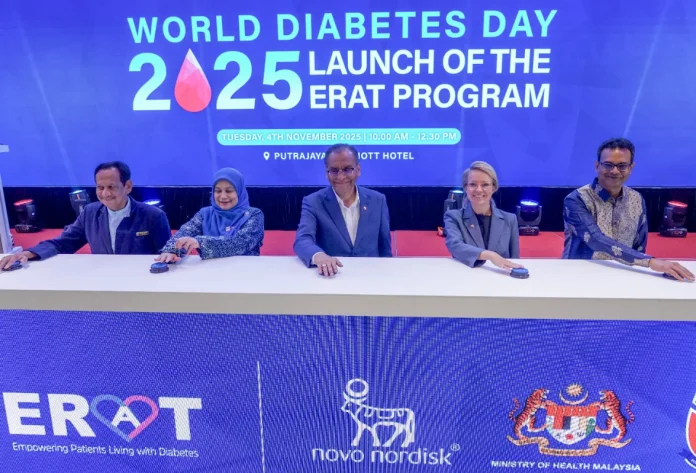Malaysia must urgently tackle the growing crisis of uncontrolled diabetes, which continues to drive up chronic diseases and healthcare costs.
PUTRAJAYA: Only 37% of Malaysia’s 1.03 million diabetes patients have their condition under control – a figure Health Minister Datuk Seri Dr Dzulkefly Ahmad said should set off alarm bells across the nation.
Speaking at the launch of the Empowering Patients Living with Diabetes (Erat) programme – a collaboration between the Health Ministry, Novo Nordisk Malaysia and the Malaysian Pharmacists Society (MPS) – Dzulkefly said Malaysia must urgently tackle the growing crisis of uncontrolled diabetes, which continues to drive up chronic diseases and healthcare costs.
“Of the one million active diabetic patients in our facilities, only 36.7% have controlled blood sugar levels based on the HbA1c indicator for long-term blood sugar control.
“That means nearly two-thirds of patients are still struggling to manage their diabetes.”
He warned that uncontrolled diabetes often leads to serious complications such as heart attacks, kidney failure, strokes and amputations, and contributes to Malaysia’s RM64 billion annual burden of non-communicable diseases (NCD).
Dzulkefly said Erat and its self-monitoring of blood glucose (SMBG) component aim to empower patients to take charge of their own health.
“The programme focuses on those who fail to control their condition. Through Erat we empower patients to monitor, manage and understand their own diabetes better.”
He also stressed the importance of behavioural insights in encouraging healthier lifestyles among Malaysians.
“The biggest challenge is patient compliance – how do we get them to follow their treatment plans and make better choices?.
“Behavioural insights give people options. When they can choose between sugary and less-sugary drinks, or affordable healthy foods, they are more likely to make rational, healthier decisions.”
He highlighted initiatives such as the nutri-grade labelling and sugar-sweetened beverage tax as key steps in nudging the public towards healthier choices.
When asked about the prevalence of diabetes among children, Dzulkefly acknowledged that available data is outdated, referring to figures from 2019 that recorded 977 diagnosed cases among those under 18, with up to 77% being Type 1 diabetes.
“We must update this data through new surveys and studies. Without proper data, we cannot formulate effective policies, especially for early detection and prevention among school children.”
He added that the ministry continues to work with the Education Ministry under the Healthy School Canteen Programme to promote nutrition and healthy lifestyles among students.
Deputy director-general of Health (Pharmaceutical Services) Dr Azuana Ramli said as of today, 402 of the health ministry’s facilities nationwide provide diabetes medication therapy adherence clinics (DMTAC) services, supported by 30 training centres and 37 certified preceptors.
Since the launch of DMTAC registry last year, 24,176 patients have been enrolled, with 81% achieving improved HbA1c levels, reflecting better glucose control and medication adherence.
However, she said 17% of patients still struggle to maintain good glycaemic control, and only 15% practise regular self-monitoring.








